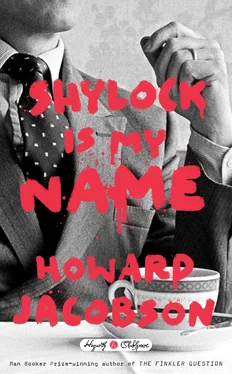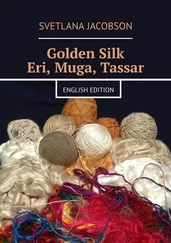“You just don’t know me,” she’d say when he mispicked. “I don’t know what we’re doing together.”
On occasions she even cried over their incompatibility of whim.
His impulse was to go and do some work under the chassis of her Volkswagen Beetle but he knew he couldn’t go on hitching his wagon to that lone star — she’d think it was the only trick he had.
He spoke to D’Anton who was, in a manner of speaking, responsible for the daily pickle in which he found himself. Without quite saying “You got me into this” he did say get me out of it. Not out of the relationship, which in other ways had so far proved as beneficial as he’d dared hope, but out of forever being tried for indiscrimination and forever being found guilty.
Although D’Anton would never have dreamed of coming between Plurabelle and Barney, he liked it when his friend, still bedwarmed, so to speak, still with the perfumes of Plurabelle on him, appealed to him for help. He didn’t care to see himself as a go-between — such a role diminished his ongoing influence — more a sort of gentleman of the bedchamber, a confidant at the highest pitch of intimacy, a priest of the nuptial mysteries, no matter that Plurabelle and Barnaby were not yet man and wife.
“What you need to do,” he said, “is man up to this aesthetically and critically.”
“What does that mean, exactly?” Barney asked.
“It means daring to trust your own judgement. Stop doing what she wants you to do.”
“I don’t know what she wants me to do.”
“Stop trying to figure it out. Follow your own impulses. Go out and buy her something decisively surprising that proves the confident refinement of your taste.”
“I’m not sure I could afford that.”
“I’m not talking expensive or meretricious. I mean an object of value in itself and in the fact that you have chosen it. Not something you guess she might like but something you do. Whatever she thinks of the gift, she will love you for being definite in your selection of it.”
Barney put his hand to his cheek like a fallen cherub in the presence of the Creator. “I suppose I daren’t risk a banger?”
“No you dare not. You don’t want to undo your good work with cars.”
“What then? Jewellery?”
“Too obviously expensive.”
“I wasn’t thinking sapphires.”
“Then too obviously cheap.”
“Perfume? Lingerie?”
Few words disgusted D’Anton more than “lingerie.” “More obvious still,” he said.
Out of ideas, Barney decided to second-guess D’Anton. “Are you thinking a work of art?”
“It’s not for me to think anything, Barnaby. But art is good, yes.”
“Do you have something she might like?”
“You are not entering into the spirit of this. This is about you, not me. Besides, Plury knows what I find and what I like. She would recognise my hand in it if you came to me.”
“So what am I to do? I have no eye.”
“You must have seen something beautiful that you like.”
“The Mona Lisa .”
“A step down from that.”
“The Singing Butler.”
“A step up.”
Barney looked hurt. Being able to look hurt was a gift that had always served him well. Like the best lyric poets he knew how to convey his hurt into every heart.
“I simply mean,” D’Anton said, remorsefully, “that I don’t think Plury will go for that.”
“You’ve just told me not to consider what she’d go for.”
“Yes, but we don’t want actively to offend her.”
Barney threw up his hands. If, as D’Anton’s expression implied, between the Mona Lisa and The Singing Butler a wide chasm of the beautiful yawned, he was damned if he knew how to cross it.
Unable to bear seeing his friend continuing at a loss, D’Anton reached out for him and put a protective hand, like an upturned cup, over his. Beneath D’Anton’s fatherly fingers Barney’s fingers quivered. D’Anton did not dare look at him. He suggested that they go together to Capes Dunn Fine Art Auction Galleries in Charles Street, Manchester. There was a sale coming up the following week. Never having been to a fine-art auction, Barney was worried he would not know what to do. “All that’s required of you is to see something that takes your fancy in the catalogue,” D’Anton assured him, “and I’ll bid for you.”
The very thought of the outing — just the two of them in pursuit of beautiful things — delighted D’Anton.
But Barney had a further concern. Money spent on Plurabelle was never, of course, wasted. “Give and ye shall receive” was one of the many Christian truisms about sensible investment his Christian mother had taught him, and to date he had surely taken from Plurabelle a sizeable interest on what he had put in. But there were limits to the store he could go on putting in from.
“We will worry about that,” D’Anton said, with gentle understanding, “when the time comes.”
One of the reasons D’Anton’s friends loved him as they did was the comforting sense he gave them of an inexhaustible store of assistance, should such be needed.
The mistake Barnaby made, when the time did come, was to allow himself to be delayed by Plurabelle asking him to choose her a book to suit her mood from a Tolkien, a Murakami and a Jackie Collins. “I couldn’t say no to her, could I?” he explained to D’Anton who was sitting waiting in a taxi, looking at his watch. D’Anton was so far irritated with his friend — believing he had forgotten an outing which in prospect meant so much to him — that he didn’t even express curiosity as to which book Barnaby had chosen. And he continued to stare out of the taxi window as Barnaby, sparing no small literary or domestic detail, set about telling him. The Murakami, apparently. Because Barnaby knew Plury loved Japanese food. As though D’Anton gave a damn. The long and the short of it was that they arrived at the auction house just too late to stop an early study by Solomon Joseph Solomon for his painting Love’s First Lesson from being sold to Simon Strulovitch. Barney had seen enough of this work in the sale catalogue to know that here was something he truly loved on his own behalf while feeling confident it would be loved every bit as well by Plurabelle, so like her was the naked Venus with her glowing cheeks and tiny nipples, and so like him was the naked Cupid in her lap, looking up at her with undisguised if slightly insolent devotion.
Particularly he liked the little bow and arrow.
“Can’t we offer to outbid him?” he wondered.
“Too late, I’m afraid,” D’Anton said. “What’s sold is sold. Did nothing else take your fancy?”
Alas, nothing else did.
For the second time in a week D’Anton was lanced in the heart by the look of bewildered dejection on his friend’s handsome face.
“Leave it with me,” he said, with a sigh that would in turn have lanced Barnaby’s heart had he possessed one.
Untrue what Strulovitch said about not exactly tailing his daughter.
It had been going on a long time. She was thirteen when it started. Thirteen in fact, twenty-three in appearance. Luscious. A Levantine princess. A pomegranate. She was luscious to herself, too. He had caught her looking at her reflection in the mirror once, pouting her lips and laughing at her own fullness, smoothing her thighs, pushing out her breasts, amused by the too-muchness but overwhelmed by it at the same time. As though it imposed a responsibility on her. Was this really her? Was this really hers to do with as she chose? He could understand it only too well. When he was thirteen and untouched he felt he had already gone to waste. A great prince in prison lies, he would say as he went alone to bed night after night. And he was no pomegranate. Of course she had to deploy herself. Of course she had to feel her beauty had a purpose beyond her own gaze and, yes — because she knew he tailed her, knew he followed her into her own bedroom even — beyond his .
Читать дальше












